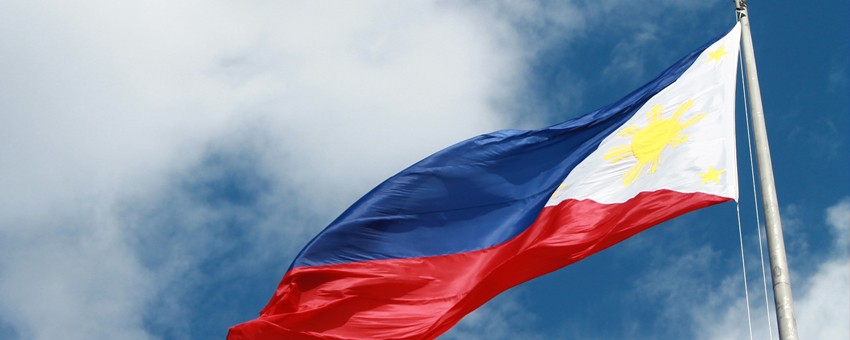
Former tourism secretary Wanda Teo, her husband Roberto Teo and 33 officials of the Tourism Infrastructure and Enterprise Zone Authority (TIEZA) are facing a graft complaint over an allegedly anomalous P300 million water supply contract in Boracay Island with Manila Water Co.Inc. (MWCI) in 2009. In a 15 page complaint affidavitfiled on May 8, Rod Padilla and Roberto Gelito, private residents of Boracay Island, urged the Office of the Ombudsman to investigate former and incumbent TIEZA officials for violation of RepublicAct 3019 or the Anti Graft and Corrupt Practices Act.Aside from the Teo couple, named as respondents in the complaint were members of the TIEZA board of director sMarco Bautista, Pocholo Paragas,Eduardo Ano, Epimaco Densing III, Analizah Teh ,Mark Villar, Karen Olivia Jimeno, Edsel Conrad Tupaz, Maximilian Anthony Fernandez, Cesar Montano, DatuAbdul Khayr Alonto, Elizaldy Co, Roy Martin, Maria Vida Stoifl, Catherine Turvill and Roy Cimatu. Also named as respondents were Mark Lapid, former general manager and chief executive officer of the Philippine Tourism Authority (now TIEZA), formerPTA board of directors members Ramon Jimenez Jr., Rogelio Singson, Luwalhati Antonino, Ramon Paje, Carlos Estepa Jr.,Vivian Otaza and Lucas Nunag and former PTA officers Teresita Verde, Lydia Cosuco, Edgar Bocar, Joy Balauitan and Miguelita Mariano. Included as private respondents were MWIC director Virgilio Rivera and Boracay Island Water Co. Inc. (BIWC) executives Luis Juan Orcta, Frank Beaumont and Jose Rene Almendras. The complaints said the respondents must be specifically held liable for violation of Section 3 (e) of RA 3019, which prohibits public officials from giving unwarranted benefit, advantage or preference to a private party or from causing any party, including the government, undue injury.The complaints said the respondents must also be charged with violation of Section3 (g) of the same law for entering into a contract grossly and manifestly disadvantageous to the government.The complaint stemmed from a joint venture agreement (JVA) that the PTA entered into with MWCI on April 21, 2009for the upgrade, operation and maintenance of the sole sewerage system facility in Boracay, which was built through an P800 million loan from the JapanInternational CooperationAgency (JICA).The facility was formerly being managed by the Boracay Waterworks and Sewerage System (BWSS), a wholly owned subsidiary of the PTA.The BWSS was taken over by PTA and MWCI's joint venture company, the BIWC, through a concession agreement following the signing of the JVA.The complainants said the respondent PTA officials rigged the process of awarding the JVA to MWCI by shortening the period for prospective bidders to submit their project proposals to 10 days instead of the standard 30 days.The complainants said the concession agreement also granted the BIWC the "sole and exclusive right" over the water supply and sewerage system operations in Boracay in violation of Article XII Section11 of the 1987 Constitution which prohibits exclusivity or monopoly of operations of public utilities. Furthermore, the complainants said both the JVA and the concession agreement were manifestly and grossly disadvantageous to the government as they did not reflect the PTA's existing rights over the facility.The complainants said that instead of subjecting the property to a third party independent valuation, "respondents have feloniously allotted the lion's share of 80 percent to MWCI amounting P240 million and a measly 20 percent to PTA amounting to P60 million.""The ownership structure of BIWC did not accurately reflect the actual value of the BWSS assets and facilities contributed by PTA to the joint venture, which would otherwise increase the ownershipof PTA in the BIWC," the complaint read.
'Hard to sell Ph without Boracay'
Earlier, President Duterte described Boracay as a pool of human waste due to the lack of sewerage system, prompting him to order the six month closure of the island starting April 26 to give way for its rehabilitation.With the closure of Boracay, the Philippines appears to be a tough sell to European tourists. European Chamber of Commerce of the Philippines president Guenter Taus said without the allure of Boracay, the Philippines has lost most of itsEuropean visitors to other destinations in Southeast Asia likeThailand, Malaysia, Indonesia and Vietnam."We've been to Europe recently for tourism mission, which is a tough sell because of closure of Boracay so it was very untimely. It was hard to sell the Philippines as a tourism destination and we've changed direction a little bit since then," Taus said. With Richmond Mercurio, Paolo Romero, Rhodina Villanueva\
This article was originally published in the Philippine Star on May 19, 2018.